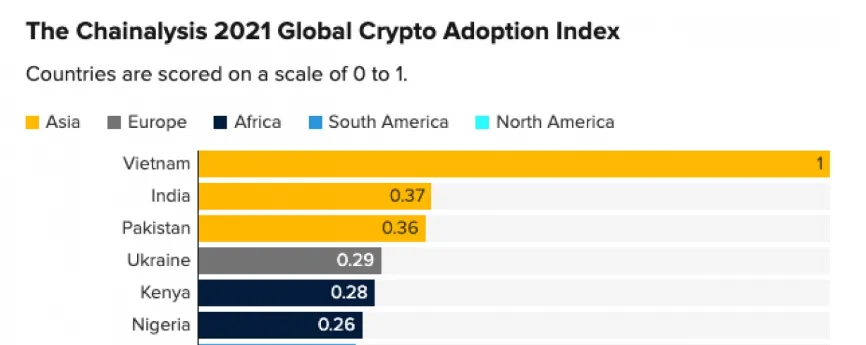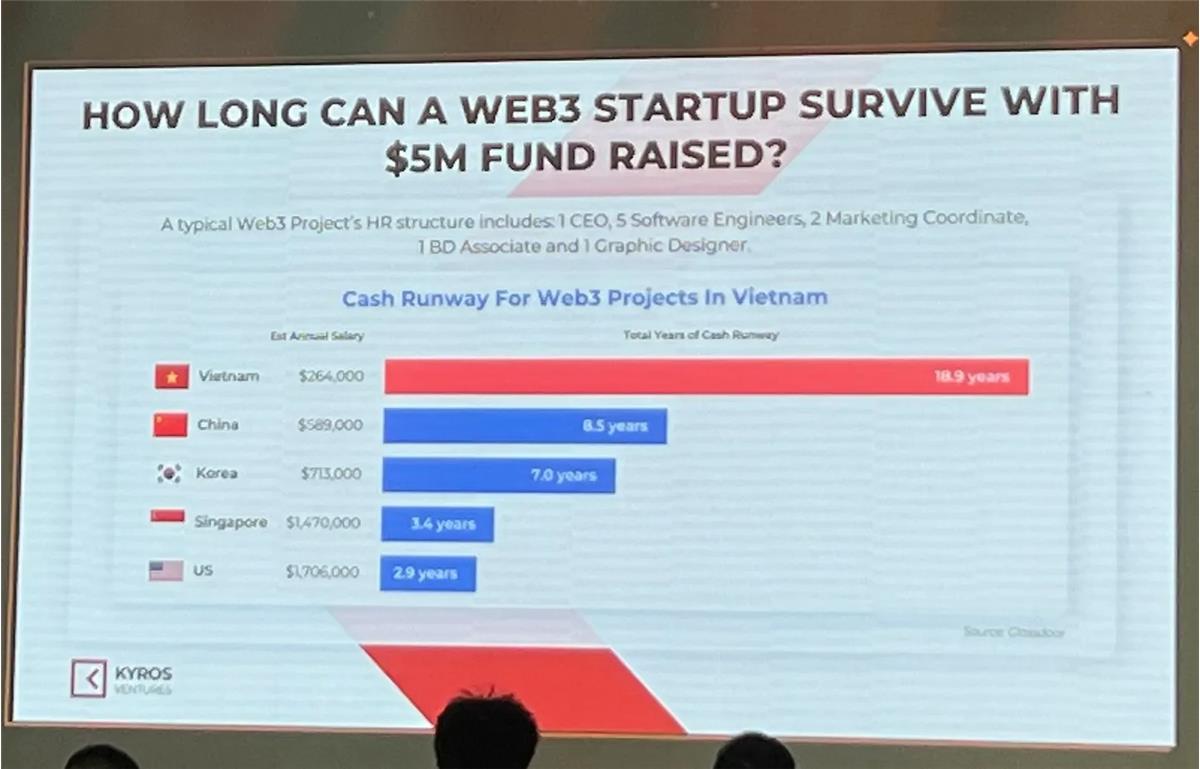Written by: TENG YAN
Compilation: TechFlow TechFlow
If there is one thing I must firmly believe in, it is this: In the world of cryptocurrencies and Web3, the center of influence is undeniably shifting east. I believe Asia will become a powerful force in the cryptocurrency and Web3 space in the not-too-distant future.
From the bustling cryptocurrency trading hubs of South Korea and Japan to the emerging markets of Vietnam and the Philippines, Asia's influence in the cryptocurrency world is growing. Later this year, Hong Kong is expected to become China’s testing ground for cryptocurrencies, even as the mainland itself remains largely closed.
What's going on here?
Asia is a hotbed of technological innovation. Companies and developers in China, South Korea, and Singapore are often at the forefront of new trends in technology.
The regulatory environment in Asia (except China) is more friendly to cryptocurrencies.
Asia, with its high mobile penetration and digital literacy levels, provides the ideal soil for digital currency adoption. As smartphones become cheaper and internet access expands, more and more Asians are connected to the world of digital finance.
In many parts of Asia, a significant percentage of the population is unbanked or underserved. Cryptocurrencies offer these people alternative ways to participate in the financial system, through cheaper and faster cross-border remittances and peer-to-peer payments.
vibrant vietnam

Last week, I traveled to Vietnam, a country that is emerging in the cryptocurrency space. Vietnam has a population of 98 million, and some tout that nearly 50% of its people have used cryptocurrencies, making it the country with the highest rate of cryptocurrency adoption in the world.
This "50%" statistic may be overstated when talking to locals.
This exaggerated data growth is fueled by multiple wallets of AirDrop hunters.
Most "regular people" still think of cryptocurrencies as a scam or a get-rich-quick scheme.
Stepping into Vietnam, you will immediately feel an indescribable energy and lively atmosphere. The population is young, dynamic and ready to fight. While language may present a barrier, those who are proficient in English have a major advantage on the international stage.

Another striking statistic: Assuming a Vietnam-based 10-person Web3 startup with $5 million in funding is configured to survive 18 years of development time. In comparison, Singapore has a measly 3.4 years and the US only 2.9 years.
Web3 products are global from the start. This means that the geographical location of the team's location becomes less important. We are still in the early stages of Web3 adoption and not sure when the inflection point will be reached. Therefore, being able to build and iterate over a multi-year period without the constant fear of running out of money is a significant advantage.
I firmly believe that more teams should consider outsourcing parts of their operations. With the rise of tech talent in places like Vietnam, this is an opportunity that cannot be ignored. Of course, this strategy depends on finding a trusted local leader or partner who can effectively manage these offshore operations.
Growing interest in VC investment in Vietnam
One of the clearest signs of Vietnam's potential is the interest of venture capitalists (VCs) from other countries.
I've met venture capitalists from various countries who took the time to focus on the Vietnam market, build local connections and resources, and find the next big startup. Valuations in Vietnam are generally more reasonable, making it an attractive market for investors.
The question on everyone's mind: who will be the next Sky Mavis/Axie Infinity ? For anyone looking to participate in the Vietnam market, here are a few key ecosystem builders:
Kyros Ventures is a top local venture capital firm and ecosystem builder, you can contact them if you want to enter the Vietnam market.
K300 Ventures is another well-known venture capital firm in Vietnam investing locally and beyond.
Often referred to as the “Binance” of Vietnam, Coin98 Wallet has exchanges, media and venture capital arms.
Ancient8 is the largest Web3 game association in Vietnam and the infrastructure layer of GameFi.
The Rise of the NFT Community

The NFT community in Vietnam has also started to flourish. Anti Anti NFTs Club (AANC) is the largest NFT community in Vietnam, led by co-founders Farrier Ng and Tin. I have met both of them in person and can attest that they are wonderful and passionate people. AANC is dedicated to education, research, and helping people find jobs in the NFT industry.
One of the highlights of my trip was the opportunity to meet my friends on Twitter on the sidelines of the event. The open bar at Avocado DAO was especially memorable, where I met amazing people from all over the world.
There are several other NFT-related projects emerging in Vietnam, including:
Aura Network , a Cosmos-based NFT chain;
SeekHYPE , an NFT marketplace;
Darenft , an NFT infrastructure protocol;
Oxalus , a social commerce platform for NFTs.
Highlights from the NFT panel discussion

While in Ho Chi Minh, I participated in several NFT panel discussions. As I prepared to answer these interesting questions, I jotted down some notes that I would like to share with you.
1. NFTs are currently in a real bear market. Liquidity in the NFT space has also been drastically reduced when it comes to trading. TLDR: Are we screwed already?
There are currently two main groups in the NFT space: traders and builders .
From a trader's perspective, NFTs are pretty much dead. When prices keep falling, there are no opportunities to make money and traders leave. But when the prices start to rise again, they will come back, I can assure you.
From a builder’s perspective: If you’ve been immersed in this space and interacting with startups and founders on a daily basis, you can’t help but be excited about the future of NFTs as a tech tool. I consider myself to be in this camp.
2. The original concept of NFT is a huge promising narrative that empowers the people, empowers creators, and provides unprecedented utility. Where are we now, and what are some concrete examples where you've seen some real progress in this area?
I believe that almost everything will have an NFT form, at least everything that is digital. NFT is essentially the property rights layer of the Internet.
Luxury brands like LV, and large consumer brands like Nike and Starbucks have already done some substantial work with NFTs. Nike, for example, is using NFTs as a new tool for branding and engaging with digitally native young audiences.
Today, social media is oversaturated. These brands are paying attention to Web3 because it is an open opportunity to reach new, digitally native audiences who will become a key market segment for decades to come.
3. How do we achieve this goal?
The key to making progress is attracting more creators into the space and making it easier for them to express their creativity with Web3 tools. This includes artists, entrepreneurs, musicians, influencers, and more.
In my opinion, we need to attract the next million creators to bring the next billion users to Web3.
4. What are the challenges and opportunities of creating a decentralized intellectual property or brand?
One of my firm beliefs is that the next big consumer IP companies will be built using Web3 infrastructure.
You don't need tens of millions of dollars to build the next Pokémon or Disney. Anyone can use NFTs (non-fungible tokens) to start (or with limited funds) and build an early community around their creative vision.
It's the law of the numbers game: many will try and fail, but a few will succeed beyond our wildest imaginations.
NFT will become the base layer for the creation of new intellectual property: whether it is movies, games or anime.
Through the early community, creators can get feedback faster, thereby quickly iterating on successful elements and shelving unsuccessful ones. The whole process is more streamlined and efficient.
Because of ownership, your community is more motivated to participate and stay loyal.
Of course, the biggest challenge is time (which takes years) and making the right choice for the brand.
Vietnam and the early days of Web3
After attending the conference at GM Vietnam and having many conversations, it is clear that the Web3 ecosystem in Vietnam is still in its infancy, but is definitely moving in the right direction.
It's not going to take off right away - I'm guessing maybe 2026-2030 or so. But I expect Vietnam to become a significant player in the Web3 ecosystem in the next few years.







